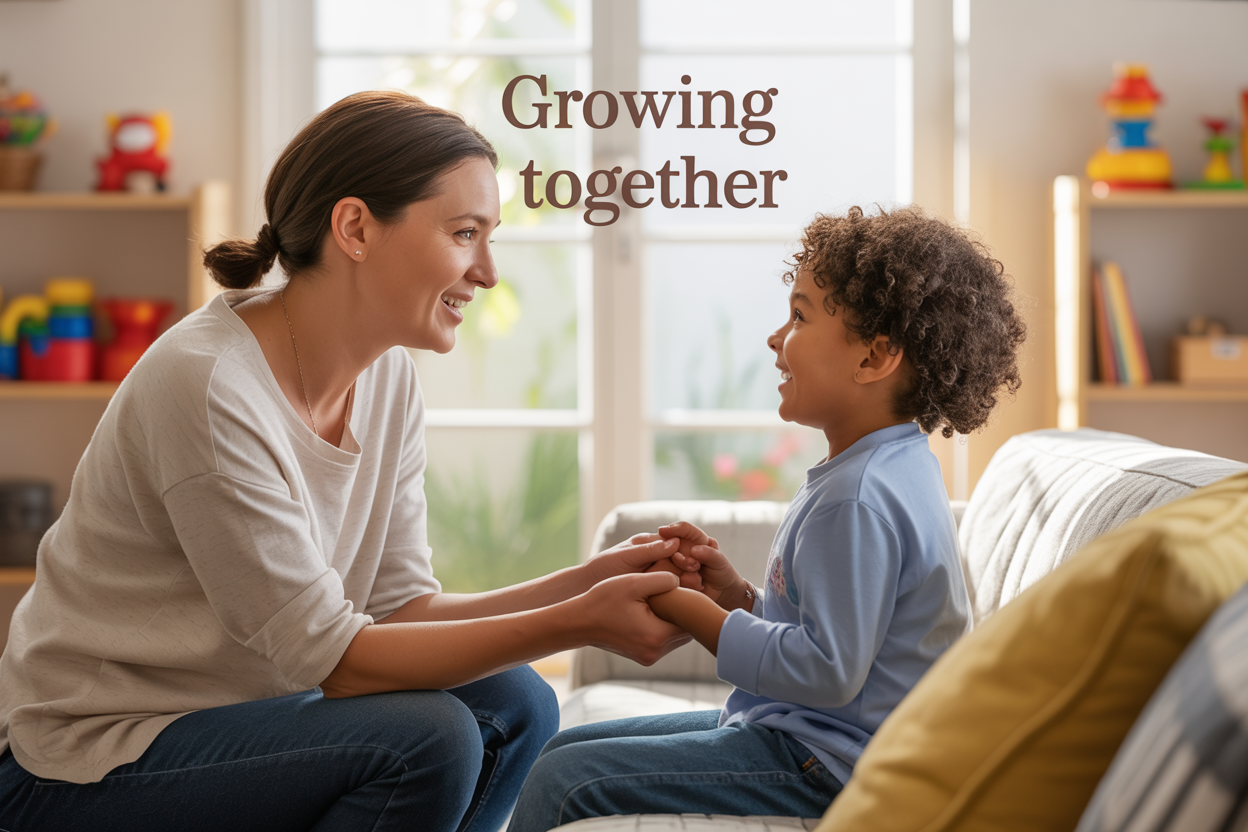Heart & Mind: The Psychology Behind Dating and Relationship Success
Dating feels like a mystery sometimes, but there’s real science behind why some relationships thrive while others crash and burn. The psychology of dating reveals patterns in how we connect, why we’re drawn to certain people, and what makes love last.
This guide is for anyone tired of repeating the same relationship mistakes, whether you’re newly single, back in the dating scene, or wanting to strengthen your current partnership. You’ll discover the hidden forces shaping your romantic choices and learn practical ways to build healthier connections.
We’ll explore how your attachment style influences every relationship you enter, why emotional intelligence dating skills can make or break your connections, and how self-sabotaging relationships often start with patterns you learned years ago. You’ll also uncover the real science of attraction beyond just physical chemistry and learn to build the kind of self-worth that attracts genuine, lasting love.
Ready to understand the psychology driving your dating life? Let’s dig into what really makes relationships work.
Understanding Your Attachment Style for Better Relationships

Identify Your Core Attachment Patterns
Your attachment style acts like an invisible blueprint that guides how you connect with romantic partners. Developed in early childhood through interactions with caregivers, these patterns stick around and influence your dating psychology well into adulthood. Research shows four primary attachment styles that shape relationship success: secure, anxious, avoidant, and disorganized.
Secure attachment creates the foundation for healthy relationship patterns. People with this style feel comfortable with intimacy and independence. They communicate needs directly, trust their partners, and handle conflict constructively. About 60% of adults fall into this category, making them natural relationship winners.
Anxious attachment shows up as a deep craving for closeness paired with fear of abandonment. You might recognize this pattern if you constantly seek reassurance, worry about your partner’s feelings, or feel anxious when they’re not immediately available. These individuals often overthink text messages and need frequent validation.
Avoidant attachment manifests as discomfort with too much closeness. People with this style value independence above connection, struggle to share emotions, and may shut down during conflicts. They often appear self-sufficient but secretly fear losing their autonomy in relationships.
Disorganized attachment combines elements of both anxious and avoidant patterns, creating unpredictable relationship behaviors. This style typically develops from inconsistent or traumatic early experiences.
Understanding your dominant pattern gives you the power to recognize why certain relationship dynamics feel familiar, even when they’re not serving you well.
Recognize How Past Experiences Shape Current Behaviors
Past experiences create emotional templates that your brain uses to navigate new relationships. These templates operate automatically, influencing everything from who attracts you to how you handle disagreements. The psychology of dating reveals that we unconsciously recreate familiar dynamics, even painful ones, because they feel predictable.
Childhood experiences with caregivers teach you what to expect from relationships. If your parents were emotionally available and responsive, you learned that people can be trusted and relationships feel safe. But if caregivers were inconsistent, critical, or absent, you developed protective strategies that made sense then but might sabotage connections now.
Pay attention to recurring patterns in your relationships. Do you always attract partners who are emotionally unavailable? Maybe you’re unconsciously drawn to the familiar challenge of trying to earn love. Do you push people away when things get serious? You might be protecting yourself from the vulnerability that hurt you before.
Previous romantic relationships also leave their mark. A betrayal might make you hypervigilant about signs of cheating. Being criticized by an ex could trigger defensive reactions with new partners. Breakup trauma can create walls around your heart that keep genuine connection at bay.
Your nervous system remembers these experiences and reacts to present situations as if past threats still exist. A partner coming home late might trigger abandonment fears that have nothing to do with their actual behavior. Recognizing these patterns helps you separate past wounds from present reality.
Transform Insecure Attachments into Healthy Connections
Transforming insecure attachment patterns requires patience, self-compassion, and consistent practice. Your attachment style isn’t permanent—it can shift toward security through conscious effort and healing relationships. Building self-worth relationships starts with developing a secure relationship with yourself.
Start by developing emotional awareness. Notice when your attachment system gets triggered. That knot in your stomach when your partner doesn’t text back immediately signals anxious activation. The urge to create distance after a beautiful date might indicate avoidant patterns kicking in. Creating space between trigger and reaction gives you choice in how to respond.
Practice self-soothing techniques when your attachment system goes haywire. Deep breathing, mindfulness, or physical exercise can calm your nervous system. Instead of immediately reaching for your phone to send another text or mentally planning your exit strategy, pause and ask what you really need in that moment.
Challenge the stories your attachment style tells you. Anxious attachment whispers that silence means rejection. Avoidant patterns insist that vulnerability equals danger. Question these assumptions by gathering real evidence about your partner’s behavior and intentions. Most of the time, their actions have nothing to do with your fears.
Communicate your attachment needs without apology. Let partners know that you sometimes need extra reassurance or space to process emotions. Healthy partners will work with your patterns, not against them. This transparency builds trust and prevents misunderstandings that fuel insecure behaviors.
Choose partners who demonstrate secure attachment behaviors themselves. Secure partners remain calm during conflicts, validate your emotions, and maintain consistency in their actions. Their stability can help regulate your nervous system and model healthier relationship patterns over time.
Mastering the Art of Emotional Intelligence in Dating

Develop Self-Awareness to Attract Compatible Partners
Self-awareness forms the foundation of emotional intelligence dating success. When you truly understand your emotional patterns, triggers, and communication style, you naturally attract partners who complement and appreciate these qualities. This psychology of dating principle works because authentic self-knowledge creates magnetic confidence.
Start by identifying your core emotional needs and values. Do you crave deep intellectual conversations or prefer light-hearted fun? Are you someone who needs regular affirmation or do you value independence? Understanding these aspects helps you recognize when someone genuinely matches your energy versus when you’re forcing compatibility.
Pay attention to your emotional reactions during dates. Notice what makes you feel excited, anxious, or withdrawn. These responses reveal important information about both your preferences and potential red flags. When you’re self-aware, you stop trying to be someone else to impress others and instead show up as your authentic self.
Practice emotional check-ins throughout your day. Ask yourself: “What am I feeling right now?” and “Why might I be feeling this way?” This simple habit strengthens your emotional vocabulary and helps you communicate your needs clearly to potential partners.
Read and Respond to Your Partner’s Emotional Cues
Successful relationships depend on your ability to tune into your partner’s emotional state and respond appropriately. This skill goes beyond just listening to words – it involves noticing body language, tone changes, and subtle behavioral shifts that reveal deeper feelings.
Watch for micro-expressions and energy changes. When someone’s voice becomes slightly strained or their posture shifts, they might be feeling uncomfortable or overwhelmed. These dating psychology insights help you navigate conversations with greater sensitivity and avoid misunderstandings.
Learn to distinguish between different types of silence. Sometimes quiet moments indicate contentment and connection, while other times they signal withdrawal or processing. Asking gentle questions like “You seem thoughtful – what’s on your mind?” shows emotional attunement without being intrusive.
Respond to emotional cues with matching energy. If your partner shares something vulnerable, match their emotional intensity rather than immediately trying to fix or minimize their experience. This creates safety and encourages deeper sharing.
Practice active emotional listening by reflecting back what you observe: “I notice you seem a bit stressed about work today.” This validation helps your partner feel seen and understood, strengthening your emotional bond.
Manage Conflict Through Emotional Regulation
Conflict becomes an opportunity for deeper connection when you master emotional regulation. Instead of reacting impulsively during disagreements, emotionally intelligent daters pause, process, and respond thoughtfully. This approach transforms potentially relationship-damaging fights into growth experiences.
Recognize your physiological warning signs before emotions escalate. Racing heart, tight shoulders, or shallow breathing signal that your nervous system is activating. When you notice these signs, take a brief pause to center yourself before continuing the conversation.
Use the “pause and breathe” technique during heated moments. Take three deep breaths and ask yourself: “What am I really feeling beneath the anger?” Often, anger masks hurt, fear, or disappointment. Addressing the underlying emotion leads to more productive discussions.
Practice “I” statements that express your feelings without attacking your partner’s character. Instead of saying “You never listen to me,” try “I feel unheard when our conversations get interrupted.” This approach reduces defensiveness and keeps dialogue open.
Set boundaries around timing for difficult conversations. Avoid discussing serious issues when either person is hungry, tired, or stressed. Agreeing on better timing shows respect for both people’s emotional capacity.
Build Deeper Intimacy Through Emotional Vulnerability
Emotional vulnerability creates the deepest bonds in healthy relationship patterns. When you share your authentic feelings, fears, and dreams, you invite your partner to do the same. This mutual openness builds trust and intimacy that superficial interactions never achieve.
Start with small acts of vulnerability before sharing deeper emotions. Mention a minor insecurity, admit when you don’t know something, or share a childhood memory. These moments create safety for bigger emotional revelations later.
Share your internal experience rather than just external events. Instead of saying “Work was busy,” try “I felt overwhelmed at work today and really needed some quiet time to decompress.” This gives your partner insight into your emotional world.
Ask questions that invite vulnerability from your partner. “What’s been challenging for you lately?” or “What are you most excited about right now?” These inquiries create space for meaningful sharing beyond surface-level topics.
Accept your partner’s vulnerable shares without immediately offering solutions or judgments. Sometimes people just need to feel heard and validated. Responding with “That sounds really difficult” or “I can see why you’d feel that way” builds emotional safety.
Remember that building self-worth relationships requires both people to feel safe being their authentic selves. When you model emotional openness and respond to your partner’s vulnerability with care, you create the foundation for lasting relationship success.
Breaking Free from Self-Sabotaging Dating Patterns

Identify Your Hidden Relationship Fears
Most people carry invisible emotional baggage that sabotages their dating life without even realizing it. These hidden relationship fears often stem from past experiences, childhood patterns, or deeply rooted beliefs about love and worthiness. Common fears include the terror of abandonment, the dread of being truly seen and rejected, or the paralyzing worry that you’re “too much” for someone else.
Fear of intimacy frequently disguises itself as pickiness or high standards. You might find yourself constantly finding fault with potential partners or pulling away just when things start getting serious. Another sneaky fear is the belief that you don’t deserve love, which shows up as settling for less than you want or pushing away people who treat you well.
Take time to examine your dating patterns. Do you always attract unavailable people? Do you run hot and cold with partners? Do you create drama when things feel too stable? These behaviors often point to underlying fears that need addressing. Journaling about your relationship history can reveal patterns you’ve been blind to.
The fear of vulnerability keeps many people trapped in surface-level connections. You might share facts about your life but never your true feelings, dreams, or struggles. This protective mechanism feels safer but prevents the deep connections you actually crave.
Challenge Negative Self-Talk That Ruins Connections
Your inner dialogue shapes every interaction you have while dating. That critical voice whispering “they’re out of your league” or “you always mess things up” becomes a self-fulfilling prophecy that destroys potential relationships before they begin.
Negative self-talk often sounds so familiar that you don’t question its validity. Common relationship-killing thoughts include assuming rejection before it happens, catastrophizing small conflicts, or believing you need to be perfect to be lovable. This internal critic convinces you that you’re boring, too needy, or fundamentally flawed in ways that make lasting love impossible.
Start catching these thoughts in action. When you notice yourself thinking “I’m going to say something stupid and ruin this,” pause and ask yourself: “Is this actually true, or is this my fear talking?” Replace these destructive thoughts with more balanced ones. Instead of “I always pick the wrong people,” try “I’m learning to recognize what I want in a partner.”
Practice self-compassion by talking to yourself like you would a good friend. Would you tell your best friend they’re unlovable after one bad date? The way you treat yourself sets the tone for how others treat you.
Create positive affirmations that feel authentic to you. Rather than generic statements, focus on specific qualities you bring to relationships. Maybe you’re a great listener, have a wonderful sense of humor, or show incredible loyalty to people you care about.
Overcome the Fear of Vulnerability and Rejection
Vulnerability feels risky because it is risky. Opening your heart means accepting the possibility of pain, but it’s also the only path to genuine connection. The psychology of dating shows that people bond through shared vulnerability, not through perfect presentations of themselves.
Many people confuse vulnerability with oversharing or emotional dumping. True vulnerability means sharing your authentic self appropriately – revealing your hopes, fears, and feelings in ways that invite connection rather than overwhelm the other person. Start small by sharing something slightly outside your comfort zone and notice how it affects the relationship dynamic.
Rejection stings, but the fear of rejection often hurts more than actual rejection does. When you live in constant fear of being turned down, you make yourself smaller, hide your true personality, and miss opportunities for real connection. Remember that rejection isn’t a verdict on your worth as a person – it’s simply information about compatibility.
Reframe rejection as redirection. Every “no” moves you closer to someone who will appreciate what you offer. The people who reject the real you weren’t your people anyway. Better to discover this early than waste time trying to be someone you’re not.
Build your tolerance for vulnerability gradually. Share something personal with a trusted friend, express a genuine compliment to someone you’re dating, or admit when you don’t know something instead of pretending you do.
Replace Destructive Habits with Relationship-Building Behaviors
Self-sabotaging relationships often involves repeating the same destructive patterns while expecting different results. Maybe you ghost people when things get serious, pick fights over minor issues, or compare every new person to your ex. These habits feel automatic because they’ve become your brain’s default response to relationship stress.
Common self-sabotaging behaviors include emotional unavailability, creating unnecessary drama, perfectionism, people-pleasing, and keeping backup options instead of fully committing to getting to know one person. These patterns might have protected you once, but now they prevent the healthy relationship patterns you want to create.
Start by identifying your specific triggers. What situations make you want to run, pick a fight, or shut down emotionally? Maybe it’s when someone starts caring about you, when you feel out of control, or when vulnerability is required. Knowing your triggers helps you prepare better responses.
Replace destructive habits with relationship-building behaviors gradually. If you tend to withdraw when upset, practice expressing your feelings instead. If you’re always looking for flaws, consciously focus on appreciating positive qualities. If you avoid difficult conversations, start having them when the stakes are lower.
Create new neural pathways by consistently choosing different responses. When you feel the urge to engage in old patterns, pause and ask yourself: “What would someone who believes they deserve love do in this situation?” Then take that action, even if it feels uncomfortable at first.
The dating mindset shift from self-protection to connection-building transforms not just your romantic life but your entire relationship with yourself and others.
The Science of Attraction and Chemistry

Understand What Creates Lasting Physical Attraction
Physical attraction isn’t just about conventional beauty standards or fleeting chemistry. The science of attraction reveals that lasting physical appeal stems from multiple psychological and biological factors working together. Research shows that symmetrical facial features, clear skin, and good posture trigger positive responses because they signal health and genetic fitness. But here’s what most people miss: physical attraction grows stronger when paired with emotional connection and shared experiences.
Your brain releases dopamine when you see someone you find attractive, creating that familiar rush of excitement. However, sustained attraction depends on more than initial sparks. Studies demonstrate that people become more physically attractive to their partners over time when relationships include trust, respect, and emotional intimacy. The psychology of dating reveals that our perception of attractiveness actually shifts based on how much we value someone’s personality and character.
Body language plays a massive role in physical attraction too. Confident posture, genuine smiles, and maintaining appropriate eye contact can increase your attractiveness significantly. People who feel comfortable in their own skin naturally draw others toward them because confidence is universally appealing.
Build Emotional Chemistry Through Shared Values
Emotional chemistry creates the foundation for relationship success tips that actually work long-term. When two people share core values about life, family, career goals, and personal growth, they experience deeper connection beyond surface-level compatibility. This alignment doesn’t mean you need identical opinions about everything, but your fundamental beliefs about what matters most should complement each other.
Building emotional chemistry requires vulnerability and authentic communication. Share your dreams, fears, and past experiences that shaped who you are today. Ask meaningful questions that go beyond small talk: “What experience changed your perspective on life?” or “What values did your family instill in you?” These conversations reveal compatibility at a deeper level.
Shared activities that align with your values strengthen emotional bonds. If you both value adventure, plan hiking trips or travel experiences together. If personal growth matters to both of you, attend workshops or read books together. The key is creating memories around things that genuinely matter to you both.
Pay attention to how your potential partner handles conflict, treats service workers, and discusses their past relationships. These moments reveal true character and help you assess whether your values truly align or if you’re seeing what you want to see.
Leverage the Psychology of First Impressions
First impressions form within seconds and significantly impact dating success, but you can influence them positively by understanding the psychological principles at work. Your brain makes rapid judgments about trustworthiness, competence, and likability based on appearance, body language, and initial interactions. The good news is that being authentic and prepared helps you make the best possible first impression.
Dress in a way that reflects your personality while showing respect for the occasion. This doesn’t mean expensive clothes – it means wearing something that makes you feel confident and represents who you are. People pick up on authenticity, and trying to be someone you’re not usually backfires.
Active listening creates powerful first impressions. Put away your phone, ask follow-up questions, and show genuine interest in what your date shares. Most people spend first dates waiting for their turn to talk rather than truly listening, so this approach immediately sets you apart.
Mirror your date’s energy level naturally – if they’re more reserved, don’t overwhelm them with high energy, and if they’re animated, match their enthusiasm appropriately. This psychological technique, called mirroring, helps people feel more comfortable and connected with you.
Remember that first impressions work both ways. Pay attention to how your date treats others, their punctuality, and whether their actions match their words. These early indicators often predict future behavior patterns.
Distinguish Between Infatuation and Genuine Connection
Understanding the difference between infatuation and genuine connection prevents self-sabotaging relationships and helps you make better dating decisions. Infatuation feels intense and all-consuming, characterized by obsessive thinking, idealization, and anxiety when apart. While exciting, infatuation typically lacks the stable foundation needed for healthy relationship patterns.
Genuine connection develops gradually and feels more like coming home than riding an emotional rollercoaster. You can be yourself completely, including your flaws and quirks, without fear of rejection. Conversations flow naturally across various topics, and you enjoy comfortable silences together. Unlike infatuation, genuine connection includes realistic perception of your partner’s strengths and weaknesses.
Infatuation often involves projection – you fall in love with your idea of someone rather than who they actually are. You ignore red flags or explain away concerning behaviors because you’re invested in the fantasy version of the relationship. Genuine connection grows from truly knowing and accepting someone as they are.
Time reveals the difference between these experiences. Infatuation typically peaks early and burns out quickly, usually within a few months. Genuine connection deepens over time as you navigate real-life situations together and see how you handle challenges as a team.
Building self-worth relationships means recognizing that genuine connection feels secure rather than desperate. You maintain your individual identity, friendships, and interests while growing closer to your partner. The dating psychology behind lasting relationships shows that the best partnerships enhance your life rather than consuming it entirely.
Building Unshakeable Self-Worth for Relationship Success

Develop Independence That Attracts Quality Partners
Your independence acts like a magnet for the right people. When you have your own interests, goals, and social circles, you become infinitely more attractive to potential partners who value depth and authenticity. Building self-worth relationships starts with creating a life so fulfilling that sharing it becomes a choice, not a desperate need.
True independence means you’re not looking for someone to complete you – you’re already whole. You pursue your passions, maintain friendships, and have personal goals that exist separate from your dating life. This confidence naturally draws quality partners who appreciate your self-sufficiency rather than feeling threatened by it.
The psychology of dating reveals that people are attracted to those who have their own direction in life. When you’re genuinely busy building something meaningful, you naturally become less available and more selective. This scarcity creates intrigue and shows potential partners that you have standards and won’t settle for just anyone.
Independence also protects you from losing yourself in relationships. You maintain your identity, interests, and friendships even when you’re falling in love. This balance keeps relationships healthy and prevents the codependency that destroys many partnerships.
Set Healthy Boundaries That Command Respect
Boundaries aren’t walls – they’re guidelines that show others how to treat you with respect. People teach others how to treat them through what they accept, and healthy relationship patterns always involve clear, consistent boundaries that protect your emotional well-being.
Start by identifying your non-negotiables. These might include how you want to be spoken to, your need for personal time, or your values around honesty and communication. When you know your limits, you can communicate them clearly before they’re crossed, not after you’re already resentful.
The key to effective boundaries is consistency. You can’t enforce them only when it’s convenient or when you’re in a good mood. Quality partners actually appreciate clear boundaries because they remove guesswork from the relationship. They know what makes you feel respected and valued.
Boundary-setting also involves saying no without lengthy explanations or apologies. “That doesn’t work for me” is a complete sentence. When you over-explain your boundaries, you invite negotiation and compromise on things that shouldn’t be compromised.
Remember that boundaries apply to your own behavior too. If you expect honesty, you must be honest. If you want respect, you must be respectful. This consistency builds trust and shows potential partners that your standards apply equally to everyone.
Cultivate Self-Love to Give and Receive Love Freely
Self-love isn’t about thinking you’re perfect – it’s about accepting yourself as you are while still growing and improving. When you genuinely love yourself, you stop seeking validation through relationships and start choosing partners who add to your happiness rather than trying to fix your emptiness.
The relationship success tips that work best all circle back to this foundation: you can’t give what you don’t have. If you don’t love yourself, you’ll constantly seek proof of your worth through your partner’s actions, creating an exhausting dynamic where love becomes conditional and anxious.
Practice self-compassion by speaking to yourself the way you’d speak to your best friend. Notice your inner critic and replace harsh self-judgment with understanding. This shift changes everything about how you show up in relationships because you’re no longer desperate to prove your worth.
Self-love also means taking care of your physical, emotional, and mental health. You exercise because you want to feel strong, not because you hate your body. You set goals because you believe in your potential, not because you’re trying to become worthy of love.
When you truly love yourself, you become incredibly attractive to healthy partners while naturally repelling those who would take advantage of low self-worth. You recognize red flags quickly because you know what respectful treatment looks like. You’re willing to be alone rather than settle for relationships that diminish you.
This foundation of self-love creates the safety net that allows you to be vulnerable in healthy ways, to communicate your needs clearly, and to receive love without constantly questioning whether you deserve it.

Dating success isn’t just about finding the right person – it’s about becoming the right version of yourself. Your attachment style shapes how you connect, your emotional intelligence determines how well you communicate, and your self-worth sets the foundation for everything else. When you understand these psychological building blocks, you can break free from patterns that hold you back and create the authentic connections you’re looking for.
The real magic happens when you stop chasing chemistry and start building compatibility. Attraction might spark the initial interest, but lasting relationships grow from emotional maturity, secure attachment, and genuine self-confidence. Take time to explore your own patterns, work on your emotional skills, and remember that the best relationships start with someone who knows their own worth. Your heart and mind work best when they’re on the same team.









